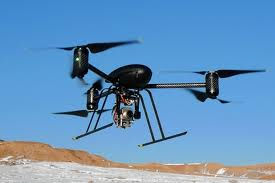
by Angela Kane
21 November 2016
This article originally appeared on thecipherbrief.com

Discussions on artificial intelligence (AI) too often revolve around concerns about the sensationalist threat of “killer robots,” usually featured in science-fiction films or computer games. Killing is depicted as easy and rapid, done by steel-clad monsters with super-human abilities.
Let me put this fear to rest. We do not yet have killer robots, though we must acknowledge that progress is being made with increasing sophistication of technology.
[...]
The progress made in recent years has been daunting. AI is not only limited to empowering machines with algorithms, but efforts are focused on trying to push the boundaries of AI by enabling machines to acquire cognitive ability by learning through observation and repetition. Video games are used to improve a program’s ability to learn and maximize the result: a skill that could be transferred to the real world. The transferability issue is strictly connected to the nature of AI as a dual-use technology, because civilian applications can also serve military purposes and vice versa.
Continue to read the full article on thecipherbrief.com
The article also appeared on PassBlue - Independent Coverage of the UN.